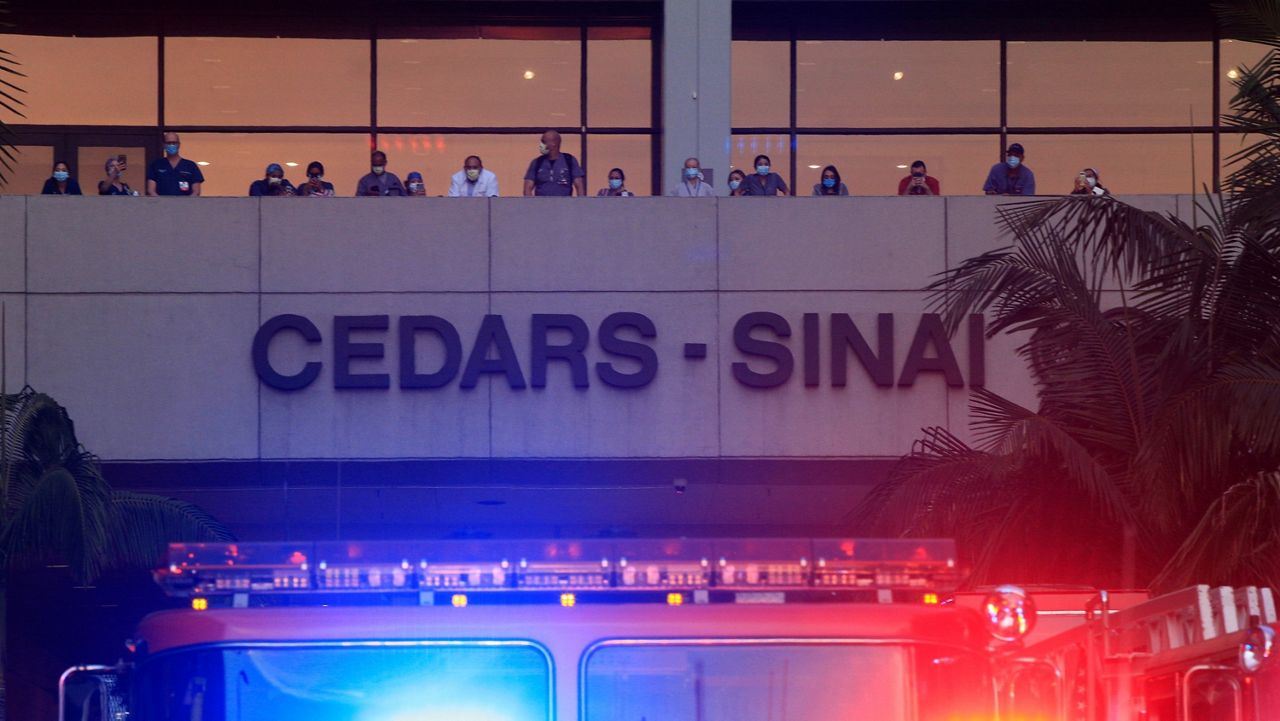LOS ANGELES (CNS) — Most of the 21 former Cedars-Sinai Medical Center workers who sued the hospital, alleging they were wrongfully denied requests for religious and medical exemptions to the hospital’s coronavirus vaccine mandate and then subjected to retaliation and harassment, must submit their claims to binding arbitration, hospital lawyers argue in new court papers.
Seventeen of the plaintiffs signed employment agreements saying they would arbitrate all legal claims regarding their work at the hospital, according to court papers filed by hospital attorneys on Thursday.
Each plaintiff’s desire to be excused from the vaccination order was reviewed on an individual basis, according to the hospital attorneys’ court papers.
“Their exemption requests were considered and, ultimately, denied,” the hospital lawyers state in their court papers. “Their employment was terminated after they refused to be vaccinated.”
The hospital attorneys also want a judge to put the entire case on hold, including the claims of the four who did not sign arbitration agreements, until the arbitration process is concluded.
“Absent a stay, the court would be required to rule on the same legal issues as the arbitrator concerning the same policy at the same time in a separate forum,” the hospital lawyers state in their court papers. “Further, absent a stay, the same witnesses will be called to testify in separate, concurrent proceedings, on the same issues and at the same time.”
Cedars-Sinai’s “malicious and reckless actions are causing intense undue stress” for the plaintiffs, who were “forced to choose between keeping their jobs, which they love, and honoring their most deeply held religious beliefs about life, purpose, and death,” the suit brought Jan. 31 states.
The hospital’s “obstructive and cavalier handling” of the plaintiffs’ exemption requests is “escalating the stress of these former employees each day,” the suit states.
Each plaintiff requested an exemption from the hospital’s COVID-19 vaccination policy and all were told, “Denied because it would be an undue hardship to accommodate your request based on the nature of your job responsibilities. Please understand that you must comply with the COVID-19 vaccination program or face termination,” according to the suit.
The sincerity of an employee’s stated religious belief is usually not in dispute and is generally presumed or easily established, the suit states.
“Employers are not and should not be in the business of deciding whether a person holds religious beliefs for the proper reasons and they should limit the inquiry to whether or not the religious belief system is sincerely held; and should not review the motives or reasons for holding the belief in the first place,” according to the suit.
The law provides protection for sincerely held religious beliefs even when some members of the same religious organization, sect or denomination disagree with the beliefs held by an individual, according to the suit.
The plaintiffs cannot accept any of the three currently available COVID-19 vaccines because they are developed and produced from aborted fetal cell lines, the suit states.
“Thus, while there may be some faith leaders and other adherents whose belief of scripture is different, and who may be willing to accept one of the three currently available COVID-19 vaccines despite their connection with aborted fetal cell lines, any CSMC employee is entitled to interpret the scriptural commands differently,” the suit states.
The hospital, in claiming that granting the plaintiffs a religious exemption would create an undue hardship, “completely fails to provide factual evidence to support its claim,” the suit states.
CSMC also turns a “blind eye to the current state of the science, which clearly indicates that vaccinated individuals spread COVID-19 just as unvaccinated individuals,” according to the suit, which says the plaintiffs suffered harassment and retaliation for their religious stands.
Hospitals statewide provide testing and masks as reasonable accommodations for those objecting to the vaccine mandates, which is consistent with state Department of Public Health guidelines, the suit states.
The plaintiffs are Rashunda Pitts, Ohara Aivaz, Katrissie Alexander, Glemma De Castro-Voungnassou, Daniela Bandera-Rojas, Kara Boyer, Marlon Bustamante, Maria Cabili, Lindsey Green, Matthew Green, Rose Lane, Mercedes Mendez, Leilani Miranda, Cherise Mosiman, Elmar Park, Reynaldo Paz, Irina Prystupa, Monique Resnick, Daniela Shamsaeirad, Mihaela Te Winkel and Asuncion Viray.
The plaintiffs held a variety of positions. Aivaz was employed as a physician, Pitts as an ICU care coordinator, Lane as an MRI technologist and Winkel as a nurse practitioner. Many of them worked as clinical nurses.
A hearing on the hospital’s motion to compel arbitration is scheduled July 13 before Judge William F. Fahey.



